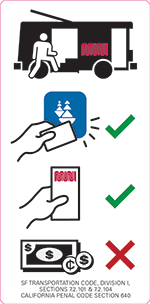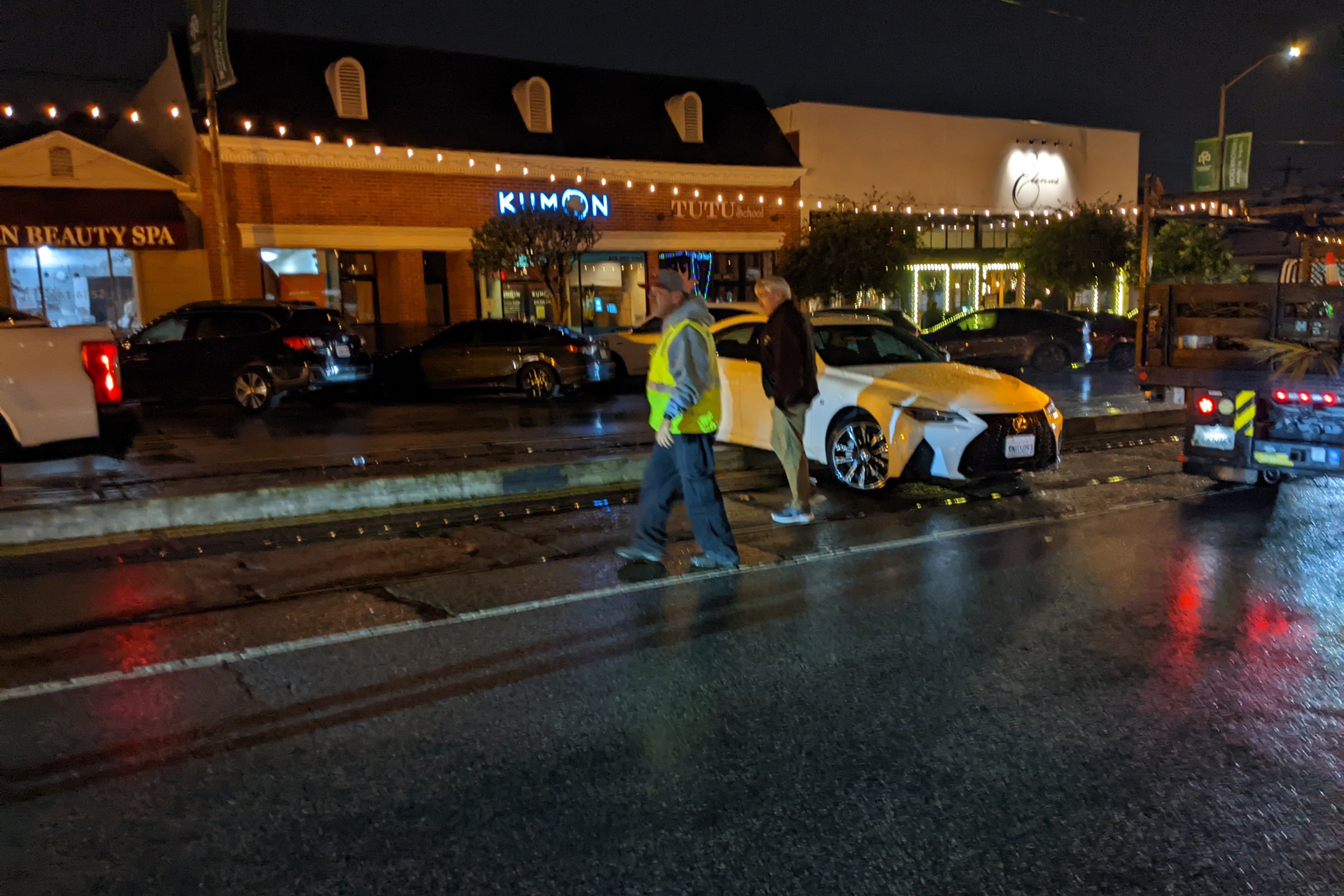Starting this Sunday, boarding the back of a Muni bus will be legal, so long as you pay. Transit advocates are excited to see the results of the long-awaited change, which will be the first of its kind in the nation. It's expected to significantly speed up boardings and increase fare compliance.
The price of an adult monthly Muni pass will also go up $2 to adjust to inflation. (A Muni-only pass will cost $64. A pass also including BART within the city will cost $74.)
The changes go into effect on July 1, the start of the next fiscal year. They're part of the SFMTA's 2012-2013 budget, which also includes parking enforcement on Sundays, though it's unclear when that will start. Although the Board of Supervisors has yet to approve the citywide budget, the SFMTA's budget did pass the Budget and Finance Committee, and the agency is apparently moving ahead with the changes.
The SFMTA hasn't done a huge amount of outreach to get the word out about all-door boarding, but the agency will replace the current "STOP" stickers on the back doors of all buses with stickers explaining the new rules (to remove language barriers, they use illustrations only). An SFMTA staffer also said the agency wanted to avoid misleading riders into thinking back-door boarding is permitted before it's actually legal. And besides, as any regular Muni rider knows, back-door boarding is already common practice, so people don't need a huge push to make the change.
To ensure people do continue paying their fares, the agency has hired ten new fare inspection employees, bringing the total up to 52, according to the SF Examiner. As Streetsblog has reported, all-door boarding will use random fare inspections, which is expected to increase fare compliance by eliminating the sense of security for evaders who make it onboard. Muni's light rail lines, where the policy has been in effect for years, see half the average rate of fare evasion compared to bus lines.
The change should help move things along on lines like the 38-Geary, which, on average, spends more than half its time stopped. Riders who typically crowd up at the front of the bus, while leaving lots of room in the back, may also start distributing themselves more evenly. (Anecdotally, I've seen Muni drivers skip stops because, I gather, the bus appears misleadingly full to them through the rear-view mirror.) The SFMTA noted that it may also free up more room at the front door for those who need to use the wheelchair lift.
It'll be interesting to see if the experiment proves a success. Other transit agencies will be watching.





